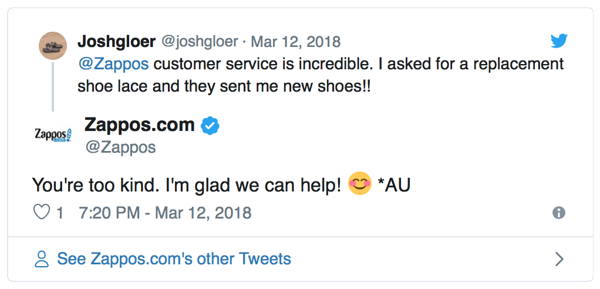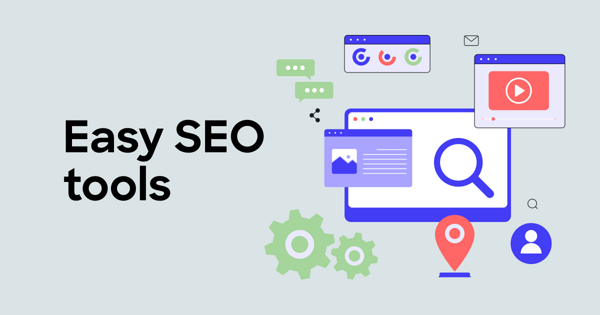Social media is not a new idea. Indeed, it has been on the minds of people for so long now that its early platforms, such as MySpace, became a punchline long ago, while Facebook, for so long considered analogous with the internet itself, has lost much of its lustre, and we now appear to be entering a third generation of the social internet.
For your business, it’s often said that “you need to be on there”, but why? And is it really necessary? Finally, if you honestly have a need to bring social media into your work (and we will help you decide if so), which platforms should you use, and how? These questions are for you to answer on behalf of your business, but Voog is here to help you decide.
Why should a business use social media?
Social media is often said to be the modern version of good old-fashioned word-of-mouth publicity. In fact, it doesn’t replace that most trusted form of marketing, but it can complement it. For example, a share or retweet can boost your brand because an individual is recommending you to their friends.This is worth far more than you just telling people why they should buy your product. It also encourages brand recognition in a far faster and more effective way than traditional advertising can.
With all this said, your decision on whether or not to use social media must be made in the best interests of selling your product. This means you must be sure that your company’s voice and message get through crystal-clear using social media (the language has to be right for the audience, and also needs to reflect your brand values), and that the platform you are using for social media is right for the kind of message you want to project.
There are several leading social media platforms for businesses, all of which have their own benefits and drawbacks. Let’s take a look at some of the reasons why, or why not, to use the most-visited social media platforms.
Facebook: everyone is there, but beware the algorithm and constant changes
“Do they have a Facebook page?” was once the first question people would ask about an emerging business. Being on Facebook was seen as a sign that you were approachable, open to feedback, and willing to engage with a global audience. It was also a ready-made webpage, back in the days when it was perhaps seen as more difficult to build websites.If you really want to take advantage of Facebook or any other social media platform, Gary is the guy to follow.
Now that there are so many easy website builders on the market, including Voog, it’s not as important to be on Facebook. A decently-SEO-optimised website, built using the right template for your business’s needs, is a far better marketing tool than a Facebook page that you don’t keep updated as often as you’d like, and that receives too many spammy messages.
With all those negatives out of the way, your Facebook page will get you additional hits for your business through Google, and it will mean that, if you post new developments on there, they can be shared and liked by the enormous global community that uses the platform.
It can, that is, if they see the posts. Facebook’s algorithms have been tweaked a lot in recent years, with users now receiving more posts from the individuals they speak to most often using the application than those they don’t, and with businesses below individuals’ personal posts in the hierarchy.
Twitter: use for conversations on market developments
Contrary to Facebook, Twitter’s problems in recent years have not so much been with users not seeing business updates, but rather with some users feeling they were exposed to too many posts of the kind they would rather not see. Twitter is sometimes said to be home to extremism and hate-speech, and while this is something the network is trying to contain, it means any sensible business will need to be very careful of the message it tries to put across on the micro-blogging site.Be absolutely sure that you talk in detail with the person responsible for your Twitter engagement, and that he or she knows exactly what topics on which it is permissible to tweet on behalf of the company. As a quick guide, updates on new products and dealing with feedback from customers is fine in tweets, political opinions and controversial jokes are not. At least, not unless you want to offend potentially millions of possible customers.
Why should you be on Twitter? If you make something that is complex, or not immediately understandable, and you have a gift for words, you can help people make it more understandable in 280 characters of carefully-planned text, possibly with an accompanying photograph.
The more people "like" and "retweet" (share on their feed) your tweets, the wider your audience. Twitter is a great way of building an audience naturally, as often the more memorable or interesting a tweet is, the more chance it has of being shared widely. If used wisely, Twitter is a fine communication tool and can put your business at the centre of intriguing industry conversations.
Instagram: corporate storytelling
Instagram is the definitive social media platform if you want to display visuals, whether you are a professional photographer, a product marketer, or a manufacturer — or anything else. Having begun as a fun way for amateurs to share their smartphone camera photos, Instagram has now grown into a fully-fledged business forum, with millions of new products launched every day, the best pictures getting thousands or even millions of "likes".Instagram is often thought to be the most fun of the social media giants — the most successful Instagrammers keep an informal, non-confrontational tone, inviting engagement rather than asking for it, and asking questions for their audience to answer in the comments. The advantage of this is that users feel naturally able to engage your business in conversation, and you can use it to judge opinions on products (as long as you remember there will also be inane comments).
Instagram now has a business function, allowing companies to include email addresses in their profiles and website links in their posts so that users can press on a product and go straight to the online store page to buy it. Another feature that many people love is Stories, which puts your business on a feed of constantly-updating temporary photos and videos that are deleted after 24 hours.
Having a visually appealing profile is key on Instagram. From high-quality images to a well-designed logo, every detail matters. One crucial element is your profile picture. Using a profile picture maker can help create a professional and eye-catching image that strengthens your brand identity.
McLaren Automotive is a shining example of how to use Instagram, the British automobile manufacturer having found all the best lighting, angles, and stories, along with driver and owner testimonies, for their cars, which always look beautiful thanks to the application’s wide range of filters. You can do the same for your company.
LinkedIn: Use for educational and professional storytelling
Unlike the quick-consumption feeds on Facebook or Instagram, LinkedIn is where professionals go for detailed, thoughtful content. It’s built for sharing expertise, industry insights, and stories that reflect your organization’s values and competence.
Whether you’re posting a short case study, a summary of recent research, or a visual format like a LinkedIn carousel post, the goal is to inform and engage a professional audience. A well-crafted post can explain a new trend, highlight how your product solves real problems, or offer advice based on industry experience.
Businesses that consistently post useful, clear, and relevant updates on LinkedIn often see better engagement, stronger credibility, and more valuable connections. Used with care and clarity, LinkedIn can help position your company as a reliable voice in your area.
Embedding social media posts into Voog pages
Voog is capable of displaying your social posts on pages, using embed codes. You can get these from Instagram, Twitter, and Facebook posts, and YouTube videos. What embedding does is enable visitors to a website to view selected social posts that you want them to see. Using our content blocks, it’s incredibly easy to insert embed codes (the long codes you can copy from sites) into your page design.Voog makes social simple — check it out!









